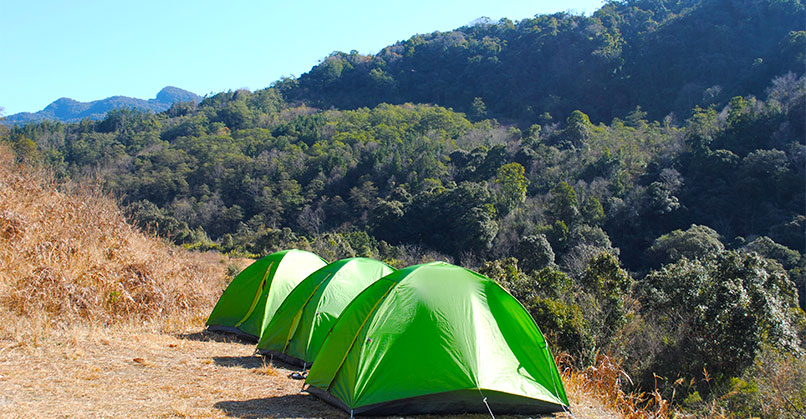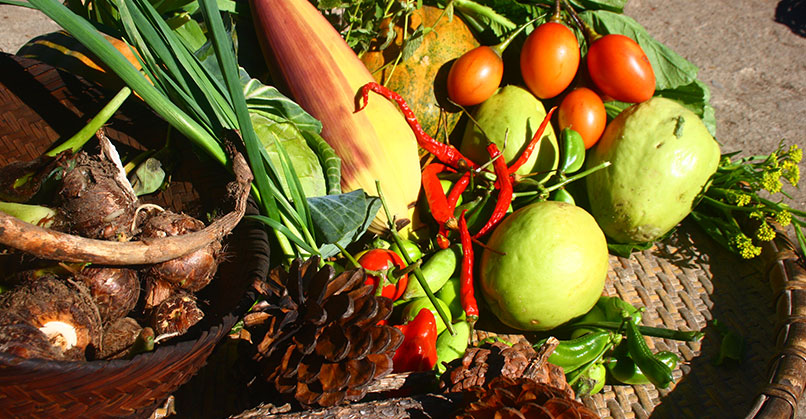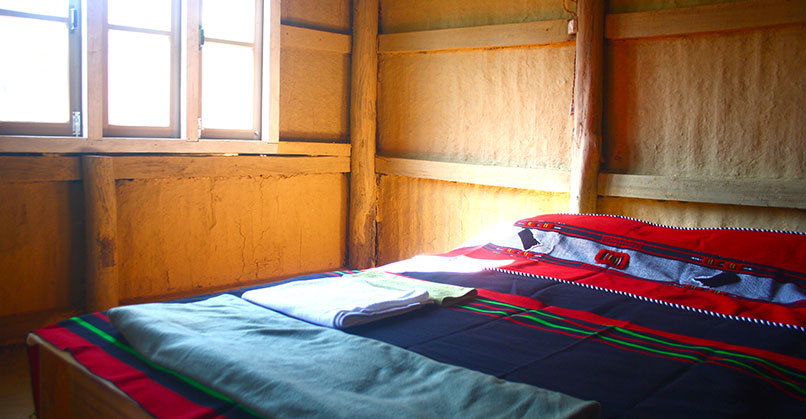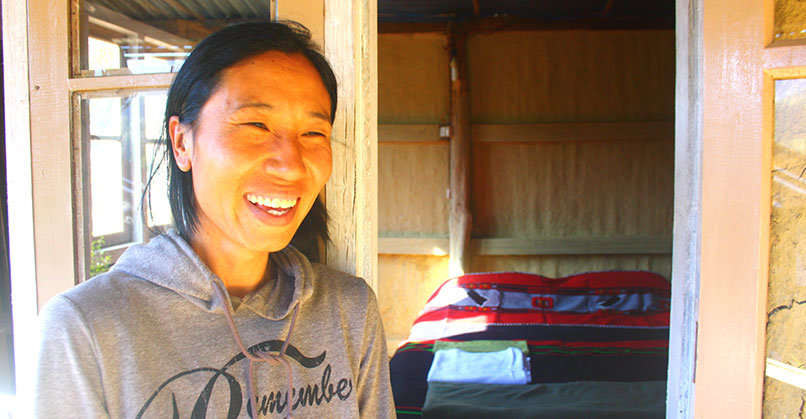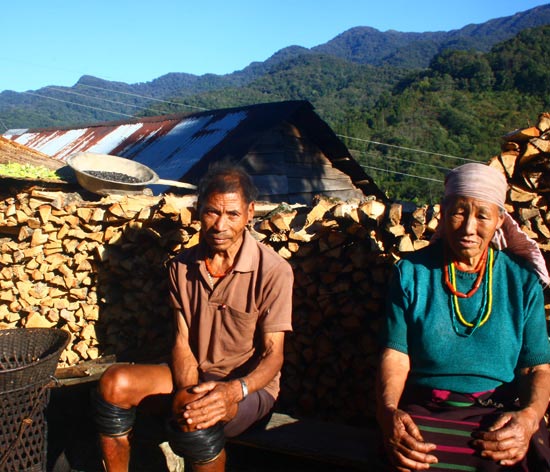
Named after the river flowing alongside, Dzüleke is a picturesque farming village nestled between evergreen mountains in Kohima district, Nagaland. It is home to approximately 200 Angami Naga tribesmen who make up the sixty homesteads that dot the lush landscape. The population of the village has been static for many years, due to migration to nearby towns in search of better livelihood.
Dzüleke villagers practice traditional systems of forest management; in 1999, however, the village council banned hunting and trapping of wild animals in the community forest. Their conservation efforts have led to the resurgence of a wide variety of flora and fauna – different species of birds, colourful insects, rare amphibians, fresh water snow trout, and animals such as bear, deer, monkey, antelope, etc., thrive in abundance. This has led to an influx of local researchers and Indian and foreign scientists who visit regularly. Due to the proximity of the village to Kohima, the capital of Nagaland, tourists also drop in regularly.
Dzüleke’s village council set up the Dzüleke Ecotourism Board (DETB) to manage tourism-related activities. Lack of resources and capacities resulted in it being largely inactive. Around this time, the North East Initiative Development Agency (NEIDA), an associate organisation of Tata Trusts, was looking at various options to promote sustainable conservation initiatives in Nagaland. The meeting with DETB was beneficial to the goals of both organisations. With support from Tata Trusts, and a series of consultations with the community, NEIDA initiated a community-based ecotourism project in Dzüleke village in 2014.
The project’s aim was two-fold:
- The local community would be able to reap the economic benefits of tourism.
- It would enhance the community’s pride in their rich natural and cultural heritage, which would motivate them to conserve these resources.
The first year of the project focused on building capacities and perspective on sustainable ecotourism as a business activity. A five-member team from DETB went on an exposure visit to Yuksam Village in Sikkim, where a similar community-based ecotourism project was being successfully implemented. NEIDA also engaged with the village youth, courting their participation in one of the activities — a grassroots comic-making workshop with ‘Ecotourism in Dzüleke’ as the theme. A local hotel in Kohima volunteered to train home-stay owners from the village and provided in-house training on hospitality management and housekeeping. NEIDA also organised training in spoken English, cooking and presentation. Selected youth were sent to the Kaziranga Wildlife Sanctuary in Assam to be trained as guides, and workshops on sanitation and basic accounting were held so that community members would be better prepared to manage tourism activities.
The list of tourism products that DETB could offer tourists visiting Dzüleke was finalised during a consultative workshop with the community. It was made clear that the Trusts’ support to this initiative would be restricted to building the community’s capacities, and that the community had to invest its own funds in tourism-related products. The project followed the principle of shared benefits, with a rotational system to ensure that each participating family benefited equally. Accordingly, a Dzüleke Development Fund was set up. It was decided that 10% of all income from tourism-related activities would be deposited in the fund, to be used for community development.
With a regular influx of visitors, the local community was soon engaged in hosting tourists. Zevino, a homestay owner, is happy that by renting out one room to tourists, she earned an additional income of Rs3,500 per month on an average. Her primary source of income is from agriculture, which sometimes fell short of meeting her family’s needs. This additional income has been a huge relief.
“Before NEIDA’s intervention we were unaware of the real meaning of ecotourism. The training NEIDA provided on conservation, sanitation, cooking healthy food for guests, and training for porters and guides have been eye-opening for the community. Because of all this help, we are now earning additional income from tourism which is used for children's education and meeting household needs. DETB is now managing our ecotourism activities with confidence and we are planning to expand our activities for tourists. We are also planning to construct a marketing shed and cold storage, which can be used for storing and selling vegetables that we grow to the visitors," says Avi Khate, Chairman, DETB.
Tourism is a seasonal activity, however, and agriculture remains the villagers’ mainstay. The goal of the community-based ecotourism project in Dzüleke is to sustain the community’s conservation efforts by offering guests an opportunity to experience true Naga rural life, while at the same time, enabling the community to supplement their income.
Apart from tourists who visited the village for day trips, about 222 tourists (94 national tourists, 70 local tourists and 58 international tourists) have visited Dzüleke in the last three years. The total income earned through ecotourism-related activities in the village (homestay, trekking, camping, guides and porters, outdoor activities, etc) so far, is about Rs4 lakh.
This year, NEIDA and DETB intends to experiment with agro-tourism. Dzüleke farmers will open their farms to local families and tourists, giving guests the opportunity to spend a day on the farm and harvest their own vegetables. Educational nature walks for schoolchildren is also in the pipeline. A tourist centre and DETB office was recently completed by DETB. Dzüleke is gearing up for yet another tourist season that will begin in October.
